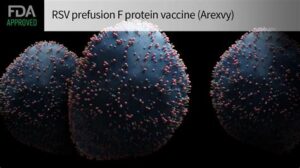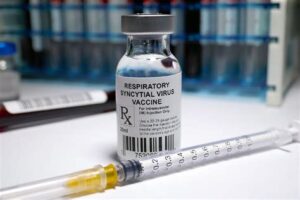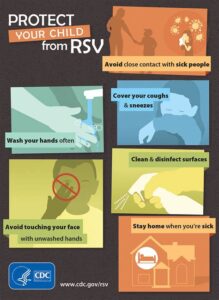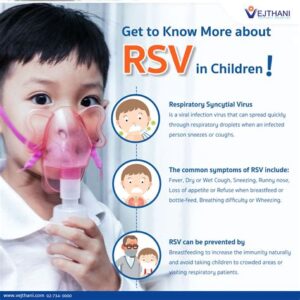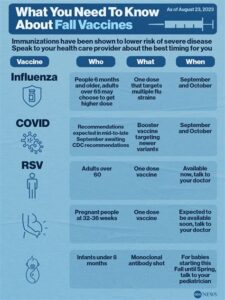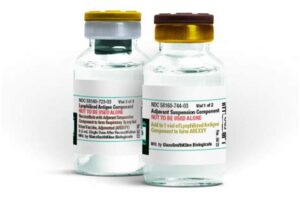Learn about RSV pneumonia, the importance of vaccination, how the vaccine works, who should get vaccinated, and its effectiveness and side effects.As respiratory syncytial virus (RSV) pneumonia continues to pose a significant health risk, particularly for young children and the elderly, understanding the intricacies of its prevention is crucial. This blog post will explore RSV pneumonia, emphasizing the importance of vaccination as a frontline defense against this potentially severe illness. We will delve into how the vaccine works, who should consider receiving it, and the balance between its effectiveness and any potential side effects. By shedding light on these critical topics, we aim to equip readers with the knowledge needed to make informed decisions regarding RSV pneumonia vaccination and safeguard their health and that of their loved ones. Join us as we uncover the facts behind this vaccine and its pivotal role in combating RSV pneumonia.
What is RSV Pneumonia?
RSV pneumonia, also known as Respiratory Syncytial Virus pneumonia, is a lower respiratory tract infection caused by the respiratory syncytial virus (RSV). This virus is particularly common in infants and young children but can also affect adults, especially those with weakened immune systems or pre-existing health conditions. RSV pneumonia is characterized by inflammation and infection of the lungs, leading to symptoms such as cough, wheezing, and difficulty breathing.
The symptoms of RSV pneumonia can mimic those of other respiratory infections, making it challenging to diagnose without appropriate medical testing. Common symptoms include fever, rapid breathing, and a reduction in oxygen levels in the blood. In severe cases, the infection can lead to serious complications, including hospitalization. Early identification and treatment are crucial for managing the disease effectively.
Given its potential severity, understanding how to prevent and treat RSV pneumonia is vital, especially for high-risk populations. Preventative measures, including the use of the RSV vaccine, are essential for reducing the incidence of this viral infection among vulnerable groups.
Importance of Vaccine
The importance of the RSV (Respiratory Syncytial Virus) pneumonia vaccine cannot be overstated, particularly in protecting vulnerable populations such as infants and the elderly. RSV pneumonia is a significant cause of respiratory illness in young children and can result in severe complications, including hospitalization and even death. Vaccination is a proactive approach to mitigating these risks.
Vaccines play a crucial role in preventing the spread of infectious diseases. By administering the RSV pneumonia vaccine, communities can achieve herd immunity, thereby reducing the overall incidence of the disease. This is especially important in environments like daycares, schools, and nursing homes, where the virus can spread rapidly.
Furthermore, the RSV pneumonia vaccine not only protects individuals who receive it but also helps safeguard those around them. For example, infants too young to be vaccinated can benefit from increased protection when a substantial portion of the population is immunized. Ultimately, supporting vaccination efforts leads to a healthier society overall, with decreased healthcare costs and improved quality of life.
How Does Vaccine Work?
Vaccines play a crucial role in protecting individuals against various diseases, including RSV pneumonia. The vaccine works by mimicking the infection, stimulating the body’s immune system to recognize and fight off the actual virus if exposed in the future.
The vaccine contains weakened or inactive parts of the virus, or a blueprint for making a piece of the virus. This causes the body to produce antibodies, which are essential for fighting off infections. When a person is vaccinated, their immune system learns to detect and respond more effectively to the respiratory syncytial virus (RSV).
Upon exposure to the actual virus after vaccination, the body can swiftly mount a defense, often preventing the severe effects of RSV pneumonia. This process is known as immunization, and it significantly reduces the risk of severe illness or hospitalization due to RSV.
Who Should Get Vaccinated?
The RSV pneumonia vaccine is an important measure to protect vulnerable populations from respiratory syncytial virus (RSV), which can cause severe illness, especially in infants and the elderly. But who exactly should receive this vaccine?
- Infants: Particularly those born prematurely or with underlying health conditions such as congenital heart disease or chronic lung disease.
- Older adults: Particularly those aged 65 and older, as their immune systems may be less effective in combating RSV infections.
- Individuals with compromised immune systems: This includes people receiving treatments for cancer or those with chronic medical conditions such as asthma or diabetes.
- Caregivers and family members of high-risk infants or elderly individuals: Vaccinating those who are in close contact can help protect the vulnerable population.
It’s essential to consult with healthcare professionals to determine if you or your loved ones fall into any of these categories and need to receive the RSV pneumonia vaccine. Vaccination can significantly reduce the risk of severe disease f
Effectiveness and Side Effects
The RSV pneumonia vaccine has been developed to reduce the severity of infection caused by the respiratory syncytial virus (RSV), which can lead to severe pneumonia, particularly in infants and the elderly. Understanding the effectiveness of this vaccine is crucial for public health and individual decision-making.
Clinical trials have shown that the effectiveness of the RSV pneumonia vaccine can vary, but studies suggest it significantly lowers the incidence of RSV hospitalizations and severe respiratory illnesses. It is essential for at-risk populations, such as newborns, preemies, and older adults, to receive vaccination to provide them with the highest level of protection. According to recent data, the vaccine demonstrates an efficacy rate ranging from 60% to 70% in preventing severe cases of RSV pneumonia.
As with any medical intervention, the RSV pneumonia vaccine may come with certain side effects. Common side effects include mild reactions such as soreness at the injection site, low-grade fever, and fatigue. Rarely, some individuals may experience more severe reactions, necessitating monitoring by healthcare providers. It is important for individuals and caregivers to weigh the benefits of vaccination against the potential for side effects, and consult with their healthcare provider for personalized advice.
Frequently Asked Questions
What is RSV and why is it a concern?
RSV, or Respiratory Syncytial Virus, is a common virus that causes respiratory infections, particularly in infants and elderly individuals. It can lead to serious conditions like pneumonia, making it a significant health concern.
Who should consider getting the RSV pneumonia vaccine?
The RSV vaccine is primarily recommended for infants, young children, and high-risk adults, especially those with underlying health conditions or weakened immune systems.
How effective is the RSV pneumonia vaccine?
Clinical trials have shown that the RSV pneumonia vaccine can significantly reduce the incidence of RSV infections and severe respiratory illness, but effectiveness can vary depending on the population and specific vaccine formulation.
Are there any side effects associated with the RSV pneumonia vaccine?
Like any vaccine, the RSV pneumonia vaccine can have side effects, which may include mild symptoms like fatigue, injection site pain, or fever. Severe side effects are rare.
When will the RSV pneumonia vaccine be widely available?
The availability of the RSV pneumonia vaccine varies by country and region. It’s important to consult healthcare providers for the latest updates on vaccine distribution and access in your area.
Can the RSV pneumonia vaccine prevent all types of pneumonia?
The RSV pneumonia vaccine specifically targets RSV-related infections and may not prevent pneumonia caused by other pathogens, such as bacteria or other viruses.
What are the next steps if someone is eligible for the RSV pneumonia vaccine?
Individuals eligible for the RSV pneumonia vaccine should consult their healthcare provider for advice on vaccination schedules and to discuss any concerns regarding the vaccine.
